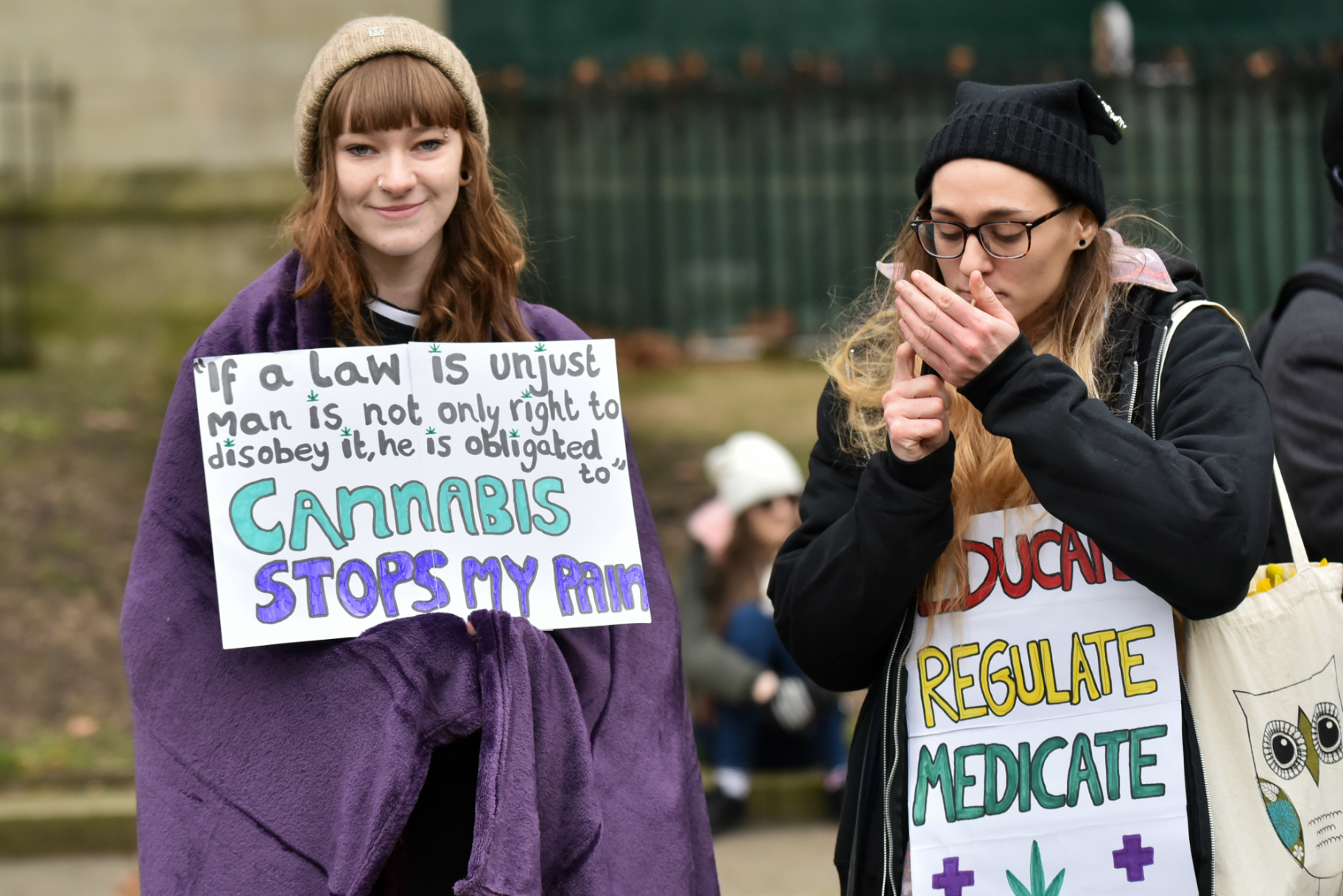Create a free profile to get unlimited access to exclusive videos, breaking news, sweepstakes, and more!
5 Ways Medical Marijuana Could Fix The Opioid Crisis, According To Science
Could marijuana be the answer to the American opioid crisis? Here's some supporting evidence that it may very well be.

With more than 115 people dying of opioid overdoses every day, the United States is dealing with the worst opioid epidemic in the nation’s history. Is medical marijuana the answer to getting a handle on this crisis? Recently published studies suggest that the answer may be yes.
1. More medical marijuana prescriptions often equals less opioids prescriptions.
This isn’t exactly fresh news — but there's more research on it now. Two studies released Monday — one that looked at opioid prescriptions covered by Medicare Part D between 2010 and 2015, and another, at Medicaid prescriptions between 2011 and 2016 — found that states that legally allowed the use of medical marijuana, especially those that permitted cannabis dispensaries, saw fewer numbers of opioid prescriptions, NBC News reports.
“Prescriptions filled for all opioids decreased by 2.11 million daily doses per year from an average of 23.08 million daily doses per year when a state instituted any medical cannabis law,” read the Medicare D study by University of Georgia, Athens researchers. Medicare Part D is the optional drug benefit plan to which more than 70% of Medicare enrollees are subscribed. “Prescriptions for all opioids decreased by 3.742 million daily doses per year when medical cannabis dispensaries opened.”
2. Marijuana may be used to effectively treat pain.
When it comes to treating pain, opioids don’t always have to be the answer. As a report from CNN pointed out, like opioids, marijuana also may be effective in treating chronic pain, seizures, multiple sclerosis, and some mental disorders, among other things.
3. Marijuana is less addictive.
A recent study found that opioid abuse rates are climbing higher and higher, growing an astonishing 493% among those insured by Blue Cross and Blue Shield between 2010 to 2016. Comparatively, marijuana usage is not associated with the same addiction risks, CNN reports (although those who frequently use marijuana do risk developing a dependence on it). Opioids can also act as a gateway drug, with about 80 percent of people who use heroin having first misused prescription opioids first, the National Institute on Drug Abuse reports.
4. Marijuana overdoses virtually never happen.
From July 2016 through September 2017, emergency department visits for opioid overdoses, including prescription pain medications, heroin, and illicitly manufactured fentanyl, rose 30%. More than 115 Americans die after overdosing on opioids every day, according to the National Institute on Drug Abuse. In comparison, the DEA reported last year that no deaths from overdose of marijuana have ever been reported.
5. Marijuana could make opioid usage safer.
Another way to decrease the dangers of opioid use? Prescribe marijuana with opioids, according to a Drug Policy Alliance report. When used in combination with opioid pain medications, marijuana can “lower opioid side-effects, cravings, and withdrawal severity,” and can also “enhance the analgesic effects of opioids, thereby allowing for lower doses of opioids and less risk of overdose” found two studies cited by the DPA.
So is legalizing marijuana on the horizon? If Jeff Sessions has his way, maybe not. But public opinion has certainly swayed in its favor — 64% of Americans don’t mind weed being legal, according to this “record-breaking” Gallup poll. And the kicker? The majority of Republicans also support it too now.
[Photo: Londoners rally in support of medical cannabis on February 23, 2018 in London, England. By Matthew Chattle/Barcroft Images/Barcroft Media via Getty Images]


